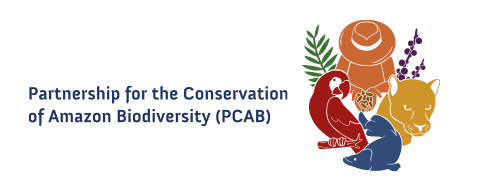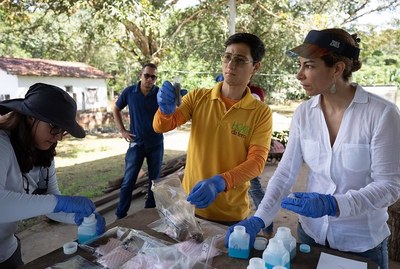Superfoods for a Super Forest
March, 2024 – Bruno Kato is a businessman. That’s why he understands the value of a healthy Amazon rainforest — to the planet, his community, and his company. Bruno is CEO of Horta da Terra, a company that produces freeze-dried superfoods like açaí, chicory, and hibiscus while helping restore the Amazon rainforest in Brazil’s Pará state.
Over 40% of deforestation in the Brazilian Amazon has occurred in Pará, largely driven by ranching and agriculture. Unsustainable cattle production can be a deforestation double whammy, as ranchers clear trees for rangeland, and then — after a few years of intensive grazing — often abandon the land in a state of ruin to seek new forest to clear for greener pastures.
And the impacts of deforestation reach far beyond just one farm. The Amazon rainforest is home to thousands of unique species, serves as a critical carbon sink, and regulates rainfall and weather patterns across South America and beyond. One landmark study found that continued Amazon deforestation would mean the Sierra Nevada mountains — which irrigate California’s farming valleys — lose half their snowpack.
Bruno wants to change that status quo. In 2009, he purchased a 91-acre degraded former cattle pasture, with a vision to kickstart a more sustainable model of production in the region. Over the next several years, he left portions of the land to naturally recover. He then began integrating layers of trees and plants which produce highly valuable superfoods alongside natural forest cover.
As the surrounding forest gets healthier, so does his farm. A strong ecosystem means a more resilient farm that can better withstand pests, weeds, and drought over time — a stark contrast to the overgrazed and abandoned cattle farms around him. Bruno has seen wildlife like monkeys, sloths, and even a jaguar begin to visit his land.
Of course, sustaining this model depends on making it profitable. That’s why USAID, Impact Earth, the Alliance Bioversity International - CIAT co-designed the Amazon Biodiversity Fund (ABF), which invests in sustainable businesses in the Brazilian Amazon.
The Amazon Biodiversity Fund has raised $50 million and invested in five businesses to date, including investing in Horta da Terra in 2021. According to Bruno, that funding has been critical in making his product economically viable.
“Once ABF invested, other investors exploded,” he said. “Everyone wants to invest with someone else. It’s like dating — when you’re single, nobody wants you, but when you’re in a relationship, suddenly everyone is interested!”
In part because of this investment, the company is now expanding from just domestic sales to international markets like the U.S. As the market for sustainable and organic superfoods continues to boom, Bruno has begun sourcing additional products from other local smallholders who grow their products under forest cover.
USAID, the International Center for Tropical Agriculture, and the Amazon Biodiversity Fund have continued to work with Bruno to monitor the health of his forest and farm, and to connect him with potential investors.
Recent analysis found that each year Bruno’s land stores about 10,000 tons of carbon dioxide equivalent — equal to the emissions avoided by taking over 2,000 cars off the road for a year — and is home to a greater diversity of insects than neighboring farms.
By clearly demonstrating that his work is helping the forest recover, this project is also raising the standard for other companies to show accountability for their own zero-deforestation or sustainability pledges.
This is an example of a new vision for the Amazon, where environmentally sustainable businesses provide jobs while restoring and protecting the forest. Across the Amazon region, USAID activities annually help conserve more than 45 million hectares, an area of forests larger than California, and more than 100,000 people experience direct socioeconomic benefits from these partnerships.
As Horta da Terra grows, Bruno hopes his success demonstrates the importance of restoring nature — both for the near-term economic opportunities, and for the long-term priceless value of a healthy planet.
“The economic equation we have does not work without nature,” Bruno said. “I hope our example can be an inspiration to others.”




